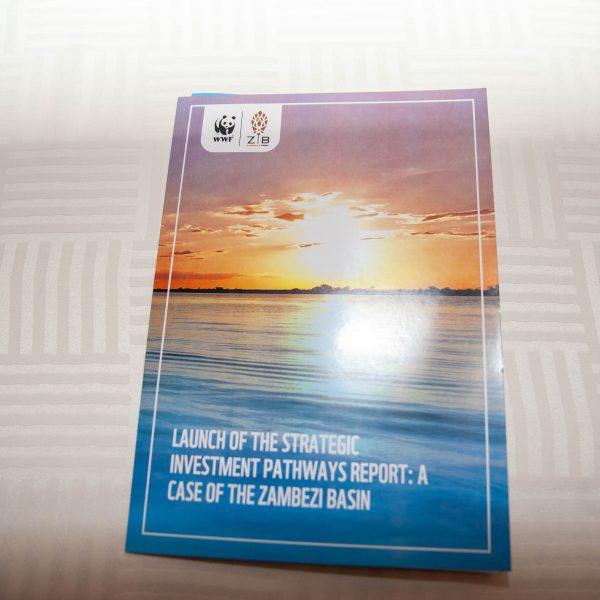There is compelling evidence that environmentally-conscious investment in water resources delivers strong financial returns and creates value for all water users, according to a latest study by WWF Zambia and Zambian Breweries, commissioned through the Organisation for Economic Co-operation and Development (OECD).
The report dubbed ‘The Strategic Investment Pathways Report: A Case of the Zambezi River Basin’ that has been launched today in Lusaka has underscored the need for private sector players to bridge the financing gap affecting the water sector, and leverage on the financial returns of investing in water resources.

According to the report, corporations with operations and supply chains in the region have a clear stake in the effective management of the water resources. Further, as beneficiaries of water resources, corporate actors could potentially be a source of capital for future investments.
The study makes a compelling argument for water financing and the use of financing mechanisms that unlock natural capital. Thanks to this report, investing in nature is a reality.
WWF Zambia Country Director Nachilala Nkombo.
She further said the number of investors that acknowledge how natural resource financing makes financial sense, not just environmental sense, is growing quickly. This is good news for the country and the planet at large, and also for those who seek this opportunity as part of their investment strategy.
The report highlights a clear roadmap for policy makers as well as private sector investors on why they should consider strategic investment pathways on water projects.
The report further urged private sector players to jump on natural resource financing, calling it a smart choice for their bottom line as it also benefits the planet at the same time.
One of the major highlights of the report is that once a project receives investment, financial returns can be generated through biodiversity offsets, water offsets, and natural infrastructure, to name a few. The project thus generates financial returns, biodiversity gains and creates jobs as well as enhancing the livelihoods of local communities, creating long term resilience and in turn reducing risk.
“Clearly, investing in natural resources such as water is a smart choice for corporate partners’ bottom line,” noted Zambian Breweries Country Director Jose Moran. “How to best maximise capital allocation lies in identifying projects with high-quality natural capital.”
“Protecting natural water sources and ensuring a steady supply of clean and safe water has been a major priority area for Zambian Breweries,” he added.
To keep watersheds healthy and communities thriving, local water users – including our own company – must replenish the water they use. This is the basis of our water management strategy – making every drop count.
Zambian Breweries Country Director Jose Moran
As the biggest brewer in the country, Zambian Breweries has invested time and money in activities like reforestation, landscape restoration, desalination and water capture and works closely with other water users to protect vital watersheds.
In the past years, the brewer has worked with city councils of Lusaka and Ndola, the WWF and other partners on major projects aimed at increasing water supply to the community of George in Lusaka, and on the Itawa springs project in Ndola.
WWF is working with the Ministry of Water Development, Sanitation and Environmental Protection on developing the Landscape Finance Plan (LFP) for the lower Kafue. This document will look to implement some of the key findings from the full report by creating a clear vision on the finance needed to ensure that the Kafue is developed sustainably.
The LFP will outline both bankable and non-bankable projects and is being developed with the support of AB-InBev and the Zambian government
